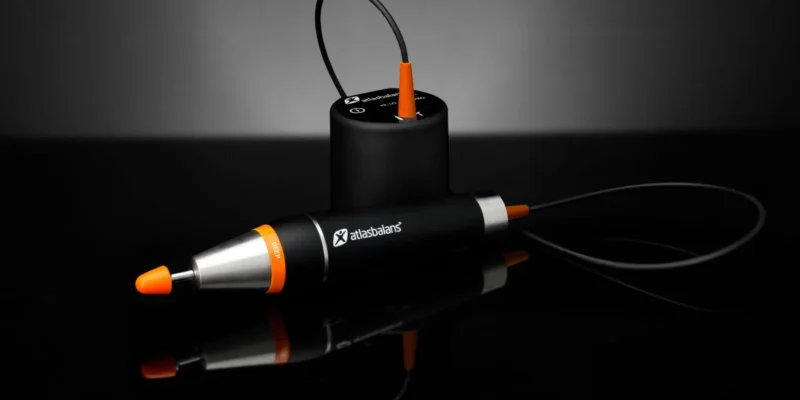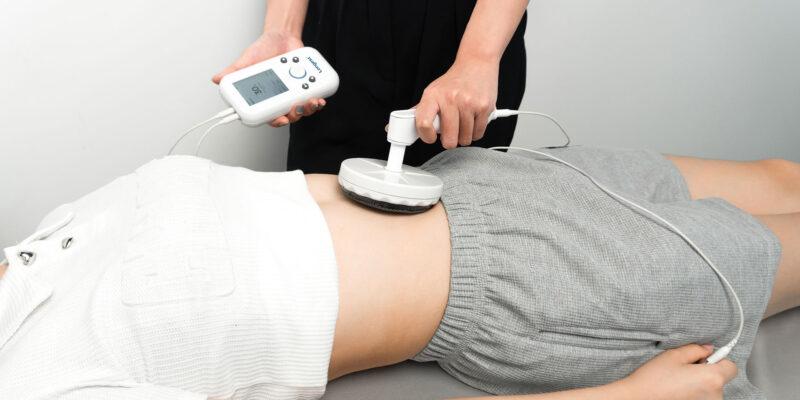Simple Steps to Beat Brain Drain and Mental Fog for a Brighter You! Ever walked into a room and instantly forgotten why you went there? Or found yourself staring blankly at your computer screen, the words blurring, feeling like your brain is wading through treacle? You’re not alone. This frustrating experience, often called “brain drain” or “mental fog,” is a common complaint in our fast-paced Australian lives. It’s that feeling of sluggishness, difficulty concentrating, and just not being as sharp as you know you can be. At Recovery Rehab Physiotherapy, we understand that true well-being goes beyond just physical health. Your mental clarity, focus, and energy levels are intrinsically linked to your overall vitality. We believe in a holistic approach, which is why we’re so passionate about helping our clients across Australia tackle issues like brain drain. It’s not just about feeling tired; it’s about impacting your productivity, your mood, and your ability to enjoy life to the fullest. But what exactly is this “brain drain,” and why does it feel like a constant companion for so many of us? More importantly, what can we do about it? Let’s dive in and uncover some simple, effective strategies to reclaim your mental sharpness. What Exactly Is Brain Drain and Mental Fog? Imagine your brain like a high-performance computer. It’s constantly processing information, running multiple programs, and managing countless tasks. Now, picture that computer with too many tabs open, low on battery, and maybe even a few viruses slowing it down. That’s essentially what brain drain and mental fog feel like. It’s not a medical diagnosis in itself, but rather a collection of symptoms that suggest your brain isn’t operating at its peak. These symptoms can include: Difficulty concentrating: You struggle to focus on tasks, even simple ones. Memory issues: Forgetting names, appointments, or what you just read. Mental sluggishness: Your thoughts feel hazy, slow, or muddled. Lack of clarity: Decision-making feels challenging or overwhelming. Reduced mental energy: Feeling mentally exhausted even without much effort. Irritability: A short fuse often accompanies a foggy mind. Essentially, it’s your brain signaling that it needs some tender loving care. And the good news? You have more power than you think to provide it! Why Does Our Brain Feel So “Drained”? The Aussie Factors! Our modern lifestyles, while offering many conveniences, also come with unique challenges that can contribute to brain drain. From the bustling city streets of Sydney to the quiet suburbs of Perth, many of us are juggling work, family, social commitments, and the constant hum of digital devices. This can leave our brains feeling overwhelmed and undernourished. Let’s look at some of the main culprits. Stress: The Silent Zapper of Cognitive Function Stress isn’t just an emotional state; it’s a powerful physiological response that impacts every system in your body, including your brain. When you’re constantly under pressure, your body pumps out stress hormones like cortisol. While helpful in short bursts for a “fight or flight” response, chronic stress can wreak havoc. It can reduce brain volume in areas vital for memory and learning, impair decision-making, and make it incredibly difficult to concentrate. Think of it like trying to navigate a complex map during a cyclone – incredibly tough! Sleep Debt: Are You Borrowing from Your Brain’s Bank? In our 24/7 world, sleep often feels like a luxury we can’t afford. But skimping on sleep is one of the quickest ways to induce mental fog. While you’re snoozing, your brain isn’t just resting; it’s actively cleaning house. It clears out metabolic waste products that build up during the day and consolidates memories. If you’re consistently short-changing your sleep, these vital processes don’t happen effectively, leaving you with that groggy, fuzzy feeling. Dehydration & Nutrition: Fueling Your Brain Right Your brain is incredibly thirsty and hungry! Composed of about 75% water, even mild dehydration can significantly impact your mood, concentration, and ability to think clearly. Similarly, what you eat directly fuels your brain. A diet heavy in processed foods, sugar, and unhealthy fats can lead to inflammation and blood sugar crashes, which translate directly into energy dips and mental sluggishness. Think of feeding your brain like fueling a high-performance car – you wouldn’t put cheap, dirty fuel in it, would you? Sedentary Habits: Get Moving for a Clearer Mind! It might seem counterintuitive, but sitting still for too long can make your brain feel stagnant. Physical activity isn’t just good for your muscles and heart; it’s fantastic for your brain. Exercise increases blood flow, delivering vital oxygen and nutrients to your brain cells. It also boosts the production of brain-derived neurotrophic factor (BDNF), often called “Miracle-Gro for the brain,” which promotes the growth of new brain cells and connections. If you’re stuck at a desk all day, your brain isn’t getting the circulation it craves. At Recovery Rehab Physiotherapy, we constantly emphasize the power of movement – it’s a cornerstone of physical and mental well-being! Digital Overload: Too Much Screen Time, Not Enough Green Time? We’re constantly bombarded with information – notifications, emails, social media feeds, news alerts. Our brains are simply not wired to handle this constant barrage of digital stimulation. This ‘always-on’ culture can lead to attentional fatigue, making it harder to focus on single tasks and contributing to a fragmented, foggy mind. The lack of time spent in nature, or “green time,” also deprives our brains of a natural reset button. Your Roadmap to Razor-Sharp Focus: Actionable Steps from Recovery Rehab Physiotherapy The good news amidst all this talk of brain drain is that you have a lot of control over how your brain functions. Small, consistent changes can lead to significant improvements in your mental clarity and energy levels. Here’s your actionable roadmap: Hydrate, Hydrate, Hydrate! This is perhaps the simplest and most immediate step you can take. Make water your best friend. Keep a water bottle handy: Sip throughout the day. Start your day with water: Rehydrate after sleep. Flavour your water: Add lemon, cucumber, or mint if plain water feels boring. Aim for around 2-3 litres a day, more if you’re active or it’s a hot Australian summer day. Your brain will thank you! Nourish Your Noodle: Eat for Brain Health What’s on your plate truly matters. Focus on whole, unprocessed foods that provide sustained energy and essential nutrients. Omega-3 Fatty Acids: Found in fatty fish like salmon, chia seeds, and walnuts. These are crucial for brain cell structure and function. Antioxidants: Abundant in colourful fruits and vegetables (berries, spinach, broccoli). They protect your brain from damage. Whole Grains: Provide a steady supply of glucose (your brain’s primary fuel) rather than sharp spikes and crashes. Limit Processed Foods & Sugar: These can lead to inflammation and energy dips. Move Your Body, Sharpen Your Mind! This is where Recovery Rehab Physiotherapy truly shines. We can’t stress enough the profound connection between physical activity and cognitive function. Regular movement is a powerful antidote to brain drain. Incorporate daily movement: Even a brisk 20-30 minute walk can make a huge difference. Break up long sitting periods: Stand up, stretch, or do a few squats every hour. Explore diverse activities: Yoga, swimming, cycling, dancing, or even gardening can stimulate your brain and body. If you’re unsure where to start, or if pain or mobility issues are holding you back, our expert physiotherapists at Recovery Rehab Physiotherapy can create a personalised exercise plan tailored to your needs. We focus on safe, effective movements that improve circulation, reduce stress, and boost your mood – all essential for a clear mind. We’re here to help you move better, feel better, and think clearer! Prioritise Quality Sleep Make sleep a non-negotiable part of your daily routine. Stick to a sleep schedule: Go to bed and wake up around the same time, even on weekends. Create a calming bedtime routine: Read a book, take a warm bath, or practice gentle stretching. Optimise your sleep environment: Keep your bedroom dark, quiet, and cool. Limit screen time before bed: The blue light emitted by devices can disrupt melatonin production. Aim for 7-9 hours of quality sleep each night. Your brain will repay you with improved focus and mental energy. Master Stress Management Since stress is such a major contributor to brain fog, learning to manage it is crucial. Mindfulness and Meditation: Even a few minutes a day can help calm your nervous system and improve focus. Deep Breathing Exercises: Simple techniques like diaphragmatic breathing can quickly reduce stress. Time Management: Learn to prioritise tasks, say no when necessary, and avoid overcommitting. Hobbies and relaxation: Engage in activities you enjoy that help you unwind, whether it’s painting, listening to music, or spending time with loved ones. Take Mindful Breaks & Digital Detoxes Give your brain a chance to reset throughout the day. The Pomodoro Technique: Work for 25 minutes, then take a 5-minute break. This can significantly boost productivity and reduce mental fatigue. Step away from screens: During breaks, look out the window, go for a short walk, or simply close your eyes for a moment. Embrace “Green Time”: Spend time in nature. Research shows that even short walks in a park can improve attention and reduce stress. Schedule digital downtime: Designate specific times or days to unplug from devices. The Power of Social Connection Humans are social creatures, and our brains thrive on connection. Isolation can contribute to feelings of sadness and mental lethargy. Connect with loved ones: Spend quality time with family and friends. Join a community group: Whether it’s a book club, a walking group, or a volunteer organisation, find ways to interact with others. Talk it out: Sharing your thoughts and feelings can be a great way to relieve mental burden and gain new perspectives. Ready to Reclaim Your Mental Clarity? Recovery Rehab Physiotherapy Can Help! At Recovery Rehab Physiotherapy, we believe in empowering you to live your best life, free from the drag of brain drain and mental fog. While we’re experts in movement and physical rehabilitation, our approach is always holistic because we understand that your physical and mental health are deeply connected. How can our team of dedicated physiotherapists in Australia assist you on your journey to a clearer, more energetic mind? Personalised Exercise Programs: We can design safe and effective movement plans that boost blood flow to your brain, improve energy levels, and reduce stress. Even if you’re managing chronic pain or mobility challenges, we’ll find ways to get you moving. Posture and Ergonomic Advice: Poor posture can contribute to tension and reduced circulation, impacting mental clarity. We can help you optimise your workspace and movement patterns. Stress Reduction Through Movement: Physiotherapy isn’t just about fixing injuries; it’s about promoting overall wellness. Gentle exercises, stretching, and mindful movement techniques can significantly reduce stress, which, as we’ve seen, is a huge contributor to brain fog. Pain Management: Chronic pain can be incredibly draining, both physically and mentally. By helping you manage and reduce pain, we free up valuable mental energy that was previously consumed by discomfort. Holistic Wellness Guidance: We’re passionate about educating our clients on how daily habits impact their health. We can offer advice and resources that complement our physical treatments, helping you integrate the brain-boosting strategies discussed here into your routine. Don’t let brain drain hold you back any longer. Imagine waking up each day feeling refreshed, focused, and ready to tackle whatever comes your way. It’s not just a dream – it’s an achievable reality. Conclusion Brain drain and mental fog are frustrating, but they don’t have to be your constant companions. By understanding the underlying causes – stress, poor sleep, dehydration, inadequate nutrition, lack of movement, and digital overload – you can start taking proactive steps today. From sipping more water to embracing daily movement and prioritising quality sleep, each small change contributes to a sharper, more vibrant mind. Remember, your brain is an incredible organ, and with the right care and attention, it can perform optimally. If you’re looking for guidance on how to integrate more movement into your daily life, manage pain that might be contributing to your mental fatigue, or simply want to talk to experts who understand the interconnectedness of your body and mind, reach out to us at Recovery Rehab Physiotherapy in Australia. We’re here to help you unlock your full potential and enjoy a life of clarity, energy, and well-being. Start your journey to a brighter, clearer you today!
Simple Steps to Beat Brain Drain and Mental Fog
Table of Contents
04/02/2026
No Comments






